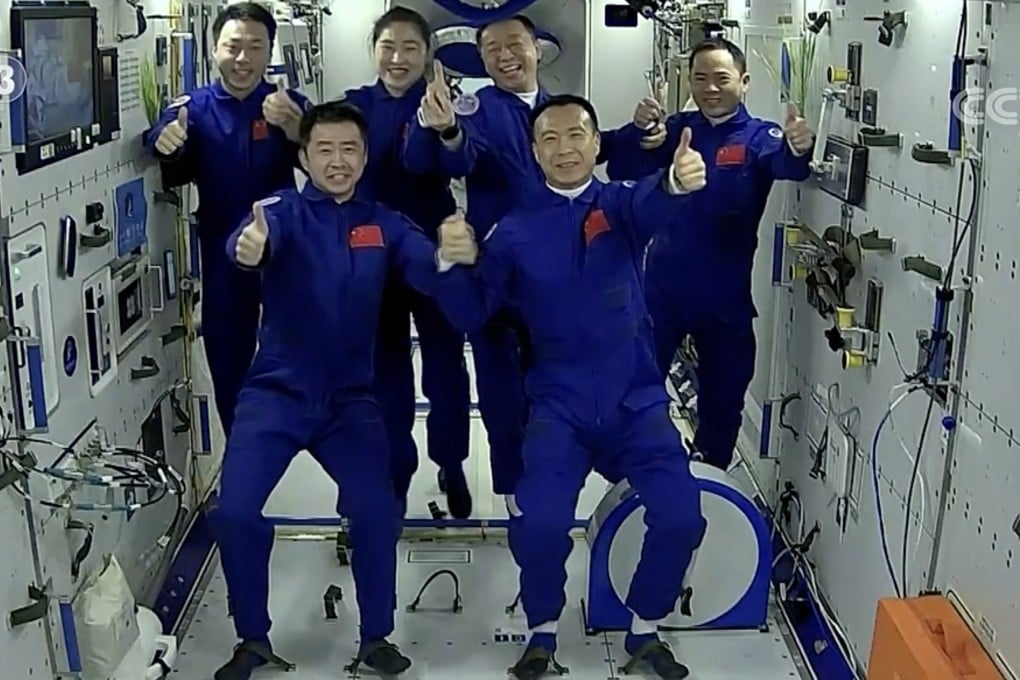Advertisement
‘Finally, you are here!’: Chinese astronauts in historic encounter aboard Tiangong space station
- In a first for China’s space programme, crews from two different missions meet in orbit as Shenzhou 15 team prepares to take over
- The new arrivals will set the stage for future science experiments by installing research equipment
Reading Time:2 minutes
Why you can trust SCMP

Ling Xinin Beijing
A historic meeting has taken place on board China’s Tiangong space station, where three newly arrived astronauts were welcomed by colleagues who have been living there since June.
“Finally, you are here!” said Chen Dong, commander of the Shenzhou 14 mission as he opened the front door of the node cabin and hugged Shenzhou 15 commander Fei Junlong. The greeting was live-streamed by state broadcaster CCTV on Wednesday morning.
Fei and fellow crew members Deng Qingming and Zhang Lu appeared excited and were seemingly still trying to adapt to microgravity. They chatted briefly with Chen and his crew mates, Liu Yang and Cai Xuzhe. The astronauts then posed together for a group photo, with everyone grinning and giving a thumbs up.
It was the first time crews from two different Chinese missions have met in space. The meeting happened at 7.33am Beijing time, according to the China Manned Space Agency (CMSA). The Shenzhou 15 spacecraft took off from the Gobi desert at 11.08pm on Tuesday and docked with Tiangong at 5.42am on Wednesday.
Advertisement
China now has six astronauts in space – more than any other country. There are three Russians, three Americans and one Japanese astronaut living on the International Space Station.
The arrival of Shenzhou 15 brought Tiangong to its largest configuration yet. The nearly 100-tonne structure also includes three modules – Tianhe, Wentian, and Mengtian – and two other spaceships, Shenzhou 14 and Tianzhou 5.
The Chinese astronauts will stay together for about five days, during which the Shenzhou 14 trio will help the new arrivals familiarise themselves with the space station before heading back to Earth early next month, according to the CMSA.
Advertisement
Advertisement
Select Voice
Select Speed
1.00x
